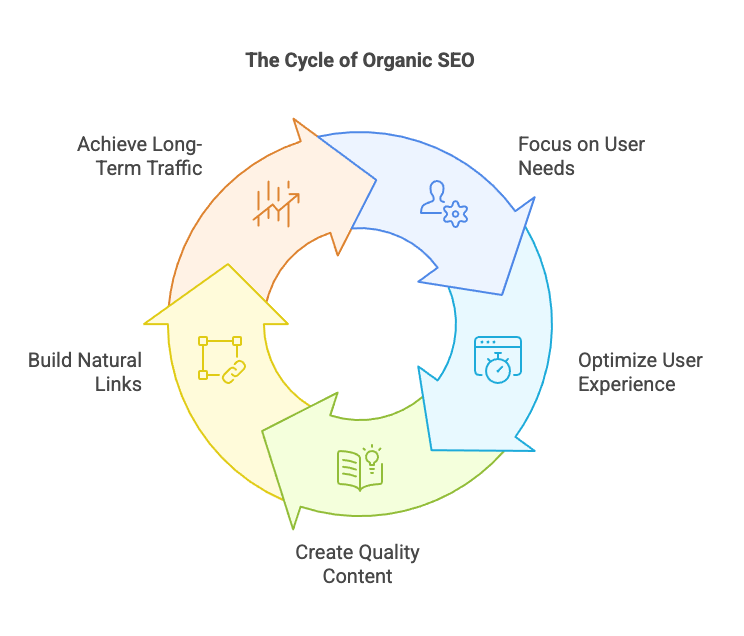I suppose there’s a certain allure to algorithm chasing, really. You’re on the bleeding edge of search engine optimization; an expert that all other marketing professionals look to for advice on how they can game the system created by Google.
You’re constantly adapting, modifying, and re-working your strategies to adapt to the latest algorithmic change.
Thing is…that’s kind of an uphill battle. No one outside Google knows how its algorithms work. Also, search engines constantly change. This means new tactics soon become useless. As a result, a site’s search engine traffic often looks like a roller coaster.
“This SEO methodology is not proactive – it’s reactive,”
writes ClickZ’s Shari Thurow. “The great thing about short-term SEO is that the SEO firm will always make money. It’s the one that truly benefits from the cat-and-mouse games. Search engines and searchers certainly don’t benefit from this exploitation.”
“Search results aren’t as accurate as they can be,” she continues. “As a result, searchers must work harder to find the sites that contain the information they desire.”
In other words, a shortsighted approach to SEO will likely hurt your site. It can harm it as much as help it. This is especially true if you only focus on optimization. Don’t forget to create good content.
True SEO isn’t just about getting many links. It’s not just about manipulating Google’s latest algorithm. Instead, it’s a long-term, natural effort. It makes your website better. It also makes it more valuable for the people who find it.

So…what’s involved in making SEO more organic?
Simple – you need to focus more on the user and how you’re meeting their needs than you do on what’s going on with Google’s latest algorithm.
You need to design each page on your website so that it perfectly provides for its related query, and craft the layout of your site so as to guide users through whatever process you desire.
You need to consider the efficacy of a particular keyword or keyphrase and work it into your content without being too obvious or spammy.
Everything on a page matters here. This includes headers and HTML tags. Anchor text is also important. Even things like load speed and usability count. Mobile functionality should also be considered. Basically, create the kind of page you’d want to see as a user.
The rest should sort itself out.
Thurow explains something important. He says a website done right gets good search traffic over time. This is true even with algorithm changes. It’s also true with new search engines. The website should focus on keywords. It should be search-friendly. And it should be user-friendly.
“Link development isn’t a difficult process because people genuinely want to link to easily accessible, unique content.”
So basically, if you want to succeed with your site’s SEO, stop chasing algorithms and looking only at short-term gains. Look instead at more stable, tried-and-true methods.
Optimization should be a process that involves careful cultivation – not one that involves making changes to your website every time Google so much as sneezes.




